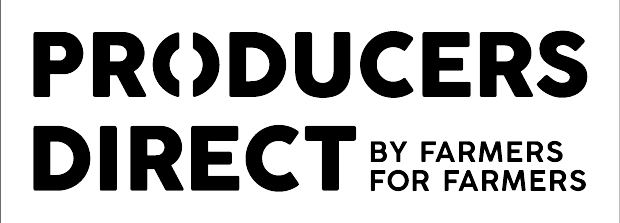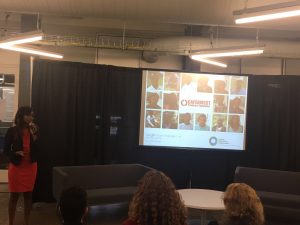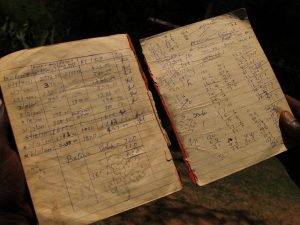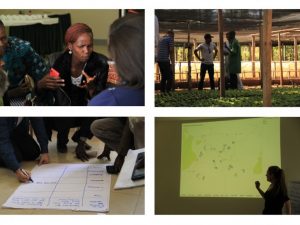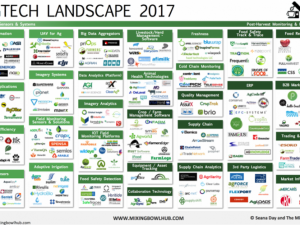Although many agree that the stakes are higher than ever, political wrangling over how to approach climate change seems to continue unabated.
Despite this, smallholder and indigenous communities across the world are responding robustly. Using their expert knowledge of the land, these communities have quietly been developing a range of innovative approaches that not only help mitigate the effects of climate change but also conserve some of the world’s most important environmental resources.
Kayona Growers Tea Factory Ltd
The smallholder farmers that make up Kayonza Growers Tea Factory Ltd are spread across the perimeter of Ugandas Bwindi Impenetrable National Park. A UNESCO World Heritage site, the forest is one of the oldest, richest ecosystems in Africa and holds half the world’s population of the critically endangered mountain gorillas. Unfortunately, however, as over 90% of community members are dependent on locally-sourced wood for energy, deforestation rates are high. Also, as the effects of climate change have seen increased temperatures, altered rain patterns, and extended droughts, the farmers in this rich, beautiful landscape have faced numerous challenges to their livelihoods. This means that farmers, that have hitherto relied on tea as their main source of income, are now faced with a growing frequency of crop failures. Combining this with a variety of other factors, such as price volatility, has led to a situation where at least 70% of a resource rich region lives on less than $2 a day.
Equator Initiative Prize
These efforts have now been rewarded with Kayonza being awarded the Equator Prize. Announced in September 2015 by UN officials and Academy Award-nominated actor and activist Alec Baldwin, this prestigious honor is bestowed on a range of indigenous community-based efforts to reduce poverty, protect nature and strengthen resilience in the face of climate change. Being awarded the prize comes with $10,000 USD prize and was celebrated at an event in Paris.
Name: Kayonza Growers Tea Factory Ltd. Country: Uganda Number of farmers: 7,200 Number of trees planted: 20,000 Household Incomes: +20%
Farmer-led Climate Adaptation
The journey to winning the Equator prize began in 2010 when Kayonza, working in partnership with Producers Direct and CIAT, began programmes aimed at tackling a broad range of issues required for their communities to adapt to climate-related stresses. Operating within a landscape where livelihoods, agriculture and biodiversity conservation are all high priorities is no easy task. However, by using an inclusive, holistic and community-led approach they have been able to simultaneously combat the financial concerns of the community and confront local drivers of climate change.
From the outset of the programme, farmers took leadership by identifying challenges they were facing, assessing the extent to which these were related to changing climatic conditions, and identifying their own ideas and solutions for tackling them. Kayonza added existing data and climate modelling to this and developed these ideas into a strategic action plan. The resulting activities were implemented through a farmer-led training model where farmers and other community leaders were nominated to be trained as trainers. These trainers held responsibility for organising and running training and other implementation activities with their peers.
Success
The results of this strategy have been incredibly impressive, with over 4,800 households already benefitting from the strategy. Upwards of 4,000 farmers, across 52 high value ecoregions, have been trained in conserving wetlands, riverbanks and natural forests. Through this and the installation of rainwater harvesting and gravity flow water systems there has been a dramatically improved access to clean water for Kayonza’s farming communities. To combat deforestation, over 20,000 indigenous trees have been re-planted across farm borders and degraded hillsides. Added to this, low energy stoves and other efficiency measures have led to a reduction in local fuel wood consumption. These measures have been scaled-out across households, and as well as cutting down on the use of locally sourced firewood have reduced smoke inhalation and time spent by women collecting the fuel.
Kayonza has encouraged their farmers to pick and deliver quality tea to the factory. This has translated into much higher market prices for their tea when compared to other tea factories in Uganda. Direct household incomes have also increased due to the development of kitchen gardens. These have been particularly effective and have resulted in income increases of up to 20%, derived from selling surplus vegetables and herbs to local markets. These kitchen gardens and on-farm fruit trees have also heralded drastic improvements to family nutrition, through the diverse range of nutritionally rich fruits, vegetables and herbs made readily available.
Combined, these benefits are enhancing community resilience and the ability of farmers to respond in the event that their tea crop fails due to extreme weather or pests. Deservedly, Kayonzas achievements have been widely recognised both in Uganda and internationally. With the support of Producers Direct other tea factories in the region have been able to send their farmers for exchange visits to learn a range of environmental techniques and how to encourage their farmers to pick quality tea and. Kayonza has been able to successfully demonstrate the business case for smallholders to take up this approach to climate change adaptation. Improved energy efficiency and enhanced volumes of tea production have seen tangible, income benefits for their members and it is hoped that these techniques can be rolled out to other organisations and cooperatives across the region.
Smallholder power
Kayonza is located in one of Uganda’s most biodiverse ecosystems. Significant pressures on wildlife and other natural resources have been driven by growing rural populations, dependent on farming for their livelihoods. However, Kayonza is a great example of how smallholder farmers can innovate to overcome the challenges they face. This is proof of the value of Producers Direct’s mission to empower and mobilise smallholders as key actors in delivering climate adaptation and mitigation strategies within their community. Globally, smallholders are recognised as one of the most effective ways to lift billions out of poverty and reduce hunger, but they are also the stewards of much of the world’s most precious environmental resources. While the rest of the world tos and fros about how best to tackle climate change, smallholder communities, such as those at Kayonza, are not waiting around to see their livelihoods and environment destroyed. Instead they are quietly taking the initiative to go about making positive change that will enable their communities to thrive within the natural limits of the planet.
